“‘If my father knew I would be dead’ – young women in Guatemala defy taboos to change their lives
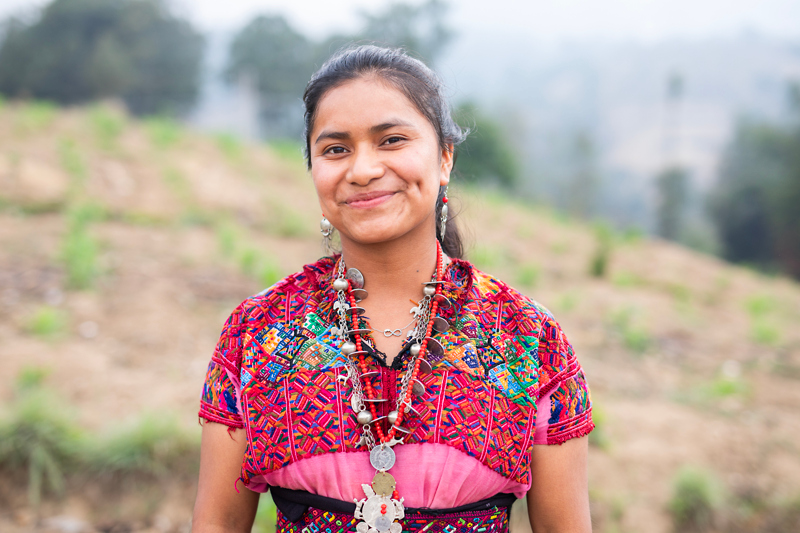
In Guatemala, girls risk their lives to learn about their own bodies. Sex education is practically non-existent, abortion is effectively banned, and silence around menstruation and sexuality is total. In the middle of this taboo, young women are working secretly with the organisation Ademkan. Their struggle is dangerous, but it is changing the future.
It is a warm afternoon in a small mountain village in western Guatemala. At a simple kitchen table three young women sit together with two older women who are leaders of the organisation Ademkan, a partner of IM. Faded photographs hang on the walls, roosters crow outside the window and the room is full of laughter and animated voices.
What begins as an ordinary interview quickly turns into an unusually open conversation — about periods, sexuality, relationships and abortion. Subjects that here are anything but straightforward to talk about.
A dangerous commitment
“If my father knew what I do, I would be dead,” says 23-year-old Catharina.
She says it with a laugh, but nobody around the table quite believes it is only a joke.
Catharina is one of Ademkan’s young leaders, known as facilitators. She trains other young people in matters relating to sexuality and sexual rights. At home in the village she keeps her involvement secret. Her parents probably suspect something, but choose to pretend they do not know.
When asked how she can sit here and talk openly about these issues in her own home, she explains that her parents speak only the local Mayan language and not Spanish, which we are using for the interview.
“They think we are part of a group that teaches young people how to repair mobile phones,” she says.
She joined one of Ademkan’s youth groups eight years ago and the journey to becoming a facilitator herself has been formative and rewarding.
“It has been very valuable to be trained by Ademkan,” she says.
“Through Ademkan I have found a safe space where I can share knowledge, thoughts and experiences with other girls. And now I help more young people access that. It feels very good.”
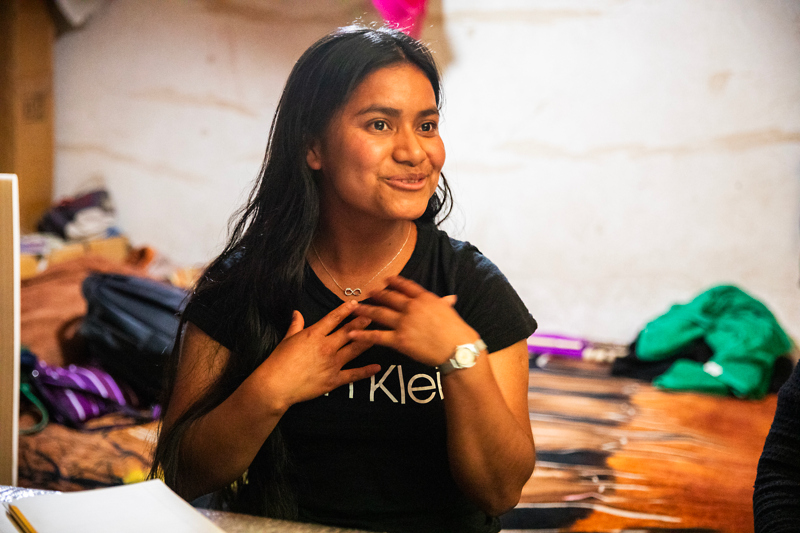
A country where knowledge is taboo
In Guatemala, sex education is theoretically required by law — but in practice it is almost entirely absent. Teachers, often men, skip the subject because they find it embarrassing. At home, parents rarely talk to their children about bodies or sexuality.
“I was terrified when I got my first period. I thought someone had hurt me,” says Manuela Margarita.
She cried in pain until her mother realised what had happened.
The third girl at the table, who is also called Manuela, shares a similar experience:
“I was really scared and didn’t understand what was happening. I didn’t tell my mother until several weeks later.”
“According to the church it is a sin to talk about sexuality and the body, so it is not surprising that our parents had never talked to us about getting our periods,” says Manuela Margarita.
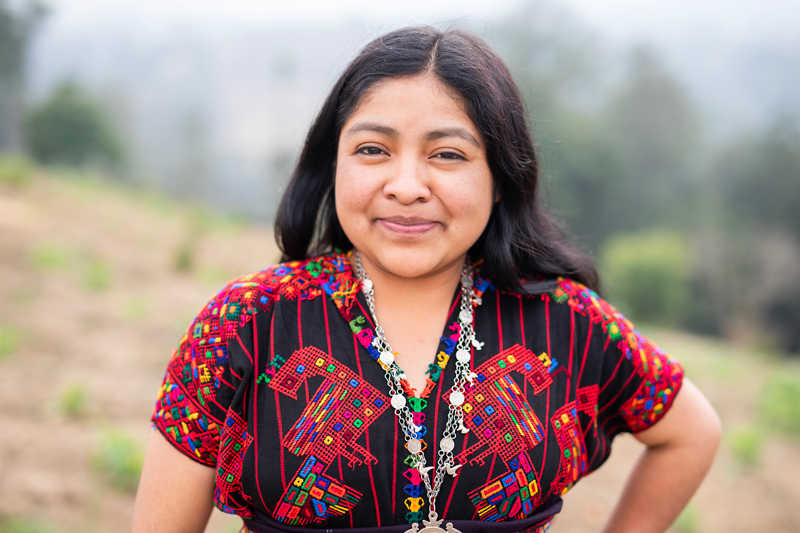
But lack of knowledge tells only part of the story. In Guatemala girls and young women face a high risk of sexual violence, and strong patriarchal norms and toxic masculinities mean that abuse is often hushed up and blame is placed on the victim. When young people do not receive information about consent, boundaries or the right to control their own bodies, the consequences of violence are compounded. According to Human Rights Watch, almost 14,700 girls under 14 gave birth in Guatemala between 2018 and 2024. Nearly 480,000 girls and young women aged 10 to 19 became mothers during the same period. Early pregnancies often lead to school drop-out, poverty and lifelong vulnerability — and the vast majority have no real ability to choose what happens to them.
The absence of sex education is not only a problem for girls. When boys and young men grow up without tools to understand consent, relationships and equality, destructive norms of masculinity risk becoming entrenched. It is a structural issue: lack of knowledge and social norms are intertwined and have consequences for the whole society, not just for individuals who lack information.
Moreover, abortion is prohibited in the country except when the mother’s life is at risk. But the exception is so difficult to apply that almost all abortions take place outside healthcare settings and in unsafe conditions. Providing advice or support on abortion can lead to lengthy prison sentences.
One of the older women at the table, Silvia Menchu Batz, tells the story of a young girl in a nearby village who had an illegal abortion and buried the foetus in the forest.
“She did not dig deep enough, so a dog dug it up. The village realised it was her and tried to lynch her. But I and some other Ademkan staff rescued her and helped her escape by boat.”
Silvia and her colleagues thus risk their freedom to support young women in the decisions that affect their lives.
A quiet revolution
In these difficult circumstances Ademkan works on the ground. The organisation trains young leaders, both girls and boys, who in turn pass on knowledge in their villages. Often this is done in secret. To avoid suspicion the meetings are called courses in cheese-making, mushroom cultivation or — as Catharina mentioned — mobile phone repair. Some time is spent on practical skills, but the core of the sessions is about bodies, health and rights.
Silvia, who has worked for Ademkan for 18 years and is now director of the organisation, says:
“When we started it was extremely difficult for us to go out and talk about SRHR issues. In the beginning we said we were running literacy courses. It was a way of getting men to let women leave the house.”
The need to teach about sexuality, contraception, sexual health and rights was then — as it is now — enormous.
“We don’t learn this at school. Without Ademkan we wouldn’t know anything,” says Manuela, who has been involved since 2016.
Ademkan also uses methods that reach beyond the classroom. Radio drama is one of the most successful. Members write scripts, record episodes and broadcast them on local stations. Listeners can get in touch, often anonymously, with questions and comments.
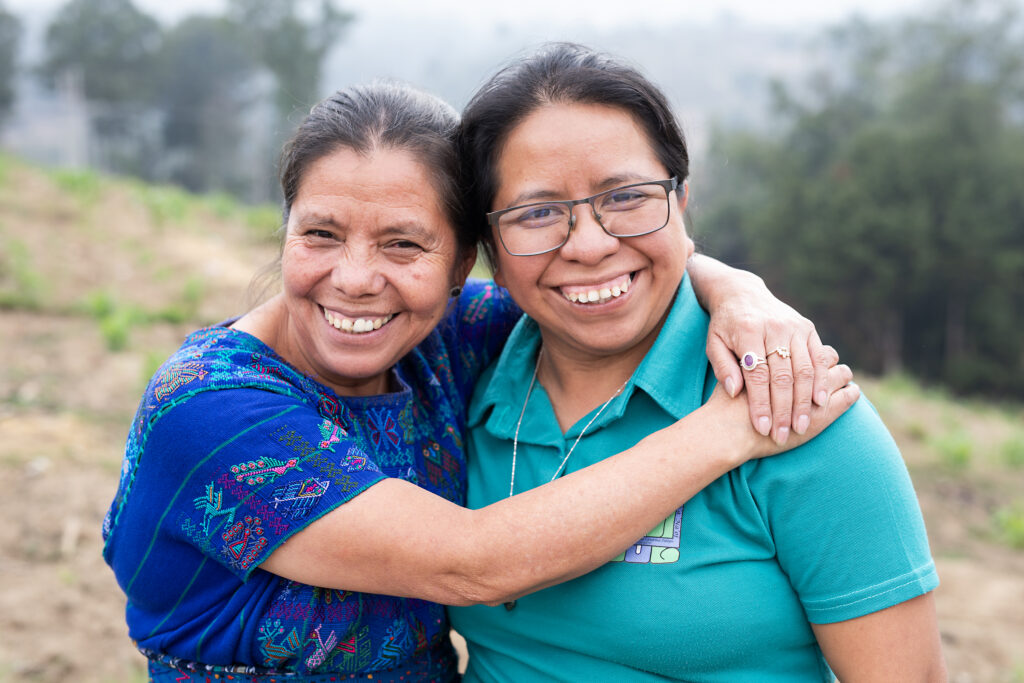
Small steps that change lives
Through young leaders such as Catharina, Manuela and Manuela Margarita norms are beginning to shift. Girls marry later, more complete their schooling and more dare to say no to coercion.
“I am 23 and not married. That is what my boyfriend and I decided together,” says Catharina. “I have taught him a lot of what I myself learned through Ademkan.”
The organisation also works with boys and men. It is harder, especially in schools with a strong religious profile, but sometimes it succeeds. Manuela says that one of her groups is made up only of young men.
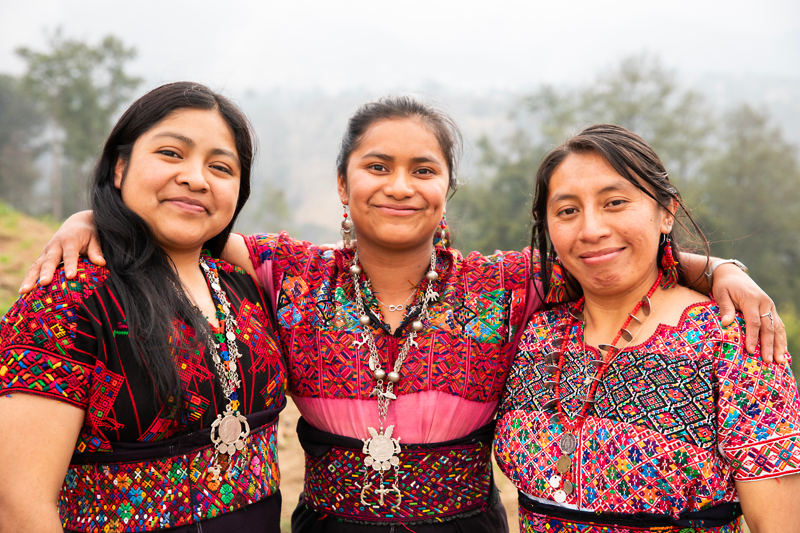
Change in everyday life
When the conversation at the kitchen table ends the young women change into their traditional clothes for the photograph. The mountains behind them are high and green, roosters crow in the village, and on the surface it looks like an ordinary day in the countryside.
But beneath the surface something larger is happening. A quiet, slow revolution, led by girls who risk everything so that others will not have to grow up without knowledge. Girls who defy taboos and threats — for the right to decide about their own lives.
For security reasons we do not publish the girls’ surnames.
Text and photo: Malin Kihlström
By: Malin Kihlström